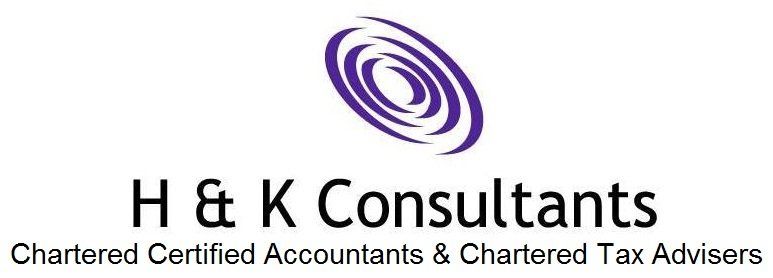Enterprise Management Incentive Schemes
What are EMI Schemes and EMI share options?
A share option is a right to acquire shares in a company, on terms set out in an option agreement. This will specify how many shares an employee may acquire, how much he or she will have to pay for the shares, and when the shares can be acquired through exercise of the option.
Examples of when an option exercise may occur include:-
- after a specified period of employment
- upon the achievement of performance targets
- upon the sale of the company
Why have EMI Schemes?
Especially for a small entrepreneurial company, where cash is often tight, shares or share options can be an important part of the package in attracting high calibre employees. An employee who sees potential for realising a significant lump sum through sale of shares may well be persuaded to join a company, even if the cash salary is less than that on offer from larger companies.
Employee share ownership helps to align the interests of a company’s owners with that of employees. All are looking to increase shareholder value through growing the business, in the hope that they will eventually benefit through the sale of their shares or through receiving dividends.
Should employees have EMI share options or shares?
There is not one correct answer to this. In some cases, it will make sense for employees to have shares from the outset. However, this will generally involve employees having to pay for their shares, or suffering a tax charge if their shares are gifted or bought at less than full value.
Having share options can provide more of an incentive than having shares – particularly if the share options can only be exercised upon achievement of targets.
Ownership of shares also comes with downsides for the company as it dilutes the control of the owner and – if all goes wrong – you have the pain of acquiring the shares from the employee if they leave.
So, more often than not, the preferred solution is share options rather than upfront shares.
How are EMI share options taxed?
There is no tax charge when share options are granted. However, for an “unapproved” share option, i.e. an option without the special tax benefits of EMI or other approved share plans, income tax and possibly National Insurance is charged when the option is exercised. And when the shares are sold, capital gains tax may be payable on any growth in value since option exercise.
EMI Schemes Example 1
David is granted an unapproved option to acquire a 3% shareholding in his employer company for its market value of £5,000. Four years later, he exercises the option at a time when the shares are worth £50,000, and two years after that he sells them for £150,000 when the company is taken over.
David pays no tax when the option is granted, but on exercise he is treated as having received taxable earnings of £45,000 (£50,000 share value less £5,000 option exercise price). He pays income tax at his marginal income tax rate, tax of up to £20,250, even though at this stage he has received no cash.
On sale of the shares, David pays capital gains tax on the £100,000 growth in value since he acquired the shares. Ignoring any reliefs he may have available, tax is charged at a rate of 20%, tax of £20,000.
So, although David has been very fortunate in being able to acquire shares for £5,000 and sell for £150,000, he has had to pay tax of up to £40,250, over half of which is payable well before he has received any money (and which might have been lost altogether had the shares collapsed in value).
So how might EMI options make a difference?
There are two main tax benefits. First, no income tax is usually charged upon exercise of the option. Second, capital gains tax upon eventual sale is usually charged at a reduced rate of 10%.
EMI Schemes Example 2
Davina is granted an EMI option to acquire a 3% shareholding in her employer company for its market value of £5,000. As in the previous example, four years later she exercises the option when the shares are worth £50,000, and eventually sells them for £150,000 when the company is taken over.
Davina pays no tax when the option is granted, and nor does she pay any tax when the option is exercised.
On sale of the shares, Davina pays capital gains tax on the gain of £145,000 (£150,000 sale proceeds less £5,000 option exercise price). Ignoring any reliefs she may have available, tax is charged at a rate of 10%, tax of £14,500.
So, Davina has saved tax of approximately £26,000 as compared to John, and paid no tax at all until after receiving her share sale proceeds. EMI tax treatment has been hugely advantageous for Davina.
Who can receive EMI options?
EMI options can only be granted to a qualifying employee of a qualifying company. The company has discretion to decide which employees should have options, up to a maximum share value of £250,000 per employee, £3 million for the whole company.
Employees (including directors) qualify if they are engaged to work at least 25 hours per week for their company or group or, if less, for at least 75% of their working time. So a part time employee can qualify by working say two days a week for the company, provided that work elsewhere does not amount to more than 25% of the whole.
Employees do not qualify if they already own over 30% of the company.
A qualifying company or group must be independent, i.e. not controlled by another company. At the date of option grant, its gross assets must not exceed £30 million and it must have fewer than 250 employees or full time equivalents.
The company or group must carry on a trade and must not, to a substantial extent, carry on excluded activities. These are non-trading activities such as property investment, and a number of trades, including:-
- property dealing and development
- banking and insurance
- legal and accountancy
- farming and forestry
- leasing and licensing (with exceptions for licensing of self-generated intellectual property)
- hotels and care homes
How does EMI work in practice?
Working with its professional advisers, the company should first establish whether it is EMI qualifying. If it is, it should decide in outline how its EMI scheme plan is to work. EMI is very flexible but key issues include:-
- which employees should be granted options, and over how many shares
- when should options be exercised, for example should exercise be based on performance targets or occur only when the company is sold
- what type of shares should be subject to options, for example should they be ordinary shares or a special share class designed for options, perhaps non-voting shares
- how much will employees have to pay to exercise options and acquire their shares
- what happens if an option holder leaves the company
Once these issues are decided, formal EMI option agreements should be prepared recording all the relevant terms. Once signed by company and employee, the options are formally granted.
The option grant must be notified to HM Revenue & Customs within 92 days. Also, it is normal practice to agree the market value of shares with HMRC in advance of the options being granted, as this will provide certainty as to the tax treatment of option exercise.
Conclusion
HM Revenue & Customs statistics show approximately 3,000 companies a year grant EMI options to employees. They are a proven incentive for employees, and companies that do not offer options may be at a competitive disadvantage in recruitment. If your company has yet to implement an option plan, maybe now is the time to consider it.
How H&K Consultants Can Help With Your EMI Schemes
Working with you we will:-
- Determine whether your company qualifies to grant EMI options
- Design your EMI scheme, including such matters as when EMI options can be exercised, and whether EMI options should be over a separate share class
- Prepare guidance notes for employee participants and, if required, attend employee briefing meetings
- Agree an EMI option scheme share valuation with HM Revenue & Customs
- Review your company’s Articles of Association and, if necessary, make revisions to accommodate employee shareholders
- Prepare all EMI option scheme rules and option agreements
- Prepare board minutes and any necessary shareholder resolutions to allow EMI options to be granted
- Make any necessary filings at Companies House
- Report the EMI option grant to HM Revenue & Customs
- Assist you in preparing and filing annual EMI option scheme returns
- When the time comes, advise on procedures for EMI option exercise and accounting for tax
Get in touch with our Team
to find out more about how we can help you and your employees get the best of a share incentive scheme.

